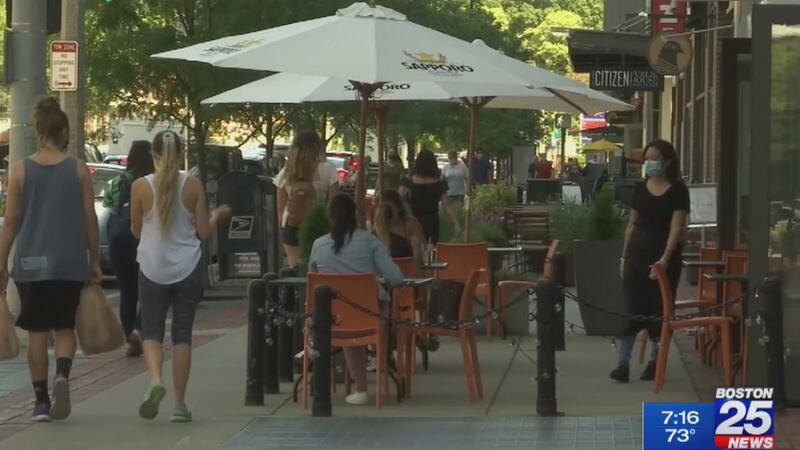BOSTON — The economic devastation left in the wake of the coronavirus has been wide and deep. The pain, however, hasn’t been shared equally.
The Great Recession was often called the “mancession,” because men were much more likely to be laid off, while women were able to hold onto their jobs.
Fast forward to today and it’s a much different situation. Between February and May this year, 11.5 million women lost their jobs, compared to 9 million men.
One woman in the Coolidge Corner section of Brookline told Boston 25 she thinks sexism at work is still an issue. “I think if someone has to lose their job, the man’s work is valued more than the woman’s is.”
Another woman pointed to the abrupt shutdown of schools and day care. “Women are suffering because they’re the default taking care of children,” she said.
>> Read more local and national coronavirus coverage
Working from home, when it was an option, wasn’t always the answer either. “What do we know about women in the home,” said Rebecca Stone, chair of Brookline’s Commission for Women. “We know the burden of homeschooling and child care falls on them much more than if there is a man in the house, right? So this is just an impossibility.”
Another consideration is the type of work women are more likely to do.
The MassINC Polling Group surveyed local companies to find the percent of businesses that lost at least half their revenue over the first six months of the year. Seventy percent in the beauty industry said they’d reached that benchmark. Compare that to 23% in construction.
“The service industry is really driven by women and that’s what’s been highly impacted in terms of the employment situation, certainly in the Boston area,” said Elaine Varelas, a human resource consultant with Keystone Partners in Boston.
Many of those jobs require a person to physically perform a task. “You find women in hourly roles, certainly in hospitality, all of those kinds of jobs,” added Varelas. “You find women more often in those kinds of positions so they’ve been impacted at a greater percentage.”
The situation could get worse for parents, particularly mothers, if schools don’t open fully in the fall.
“We can expect the burdens will continue to fall disproportionately,” said Stone.
Long-term effects could impact business, which will become less diverse, and the financial health of women who may never be able to catch up. “Their earning capacity cannot be made up once they step back from those peak earning years. You are most likely never going to recoup that in terms of your overall earning capacity, your contributions to social security,” said Varelas.
Neither Stone nor Varelas is confident that any upcoming legislation will help address these issues. They said there isn’t much appetite for what’s perceived to be “women’s Issues” either locally or nationally.
Varelas thinks change is more likely to come from companies that will help their workers, particularly women, structure their work situations with a higher degree of flexibility.
Download the free Boston 25 News app for up-to-the-minute push alerts
RESOURCES:
- Massachusetts Coronavirus Information
- Boston Coronavirus Information
- Follow us on Facebook and Twitter | Watch Boston 25 NOW






